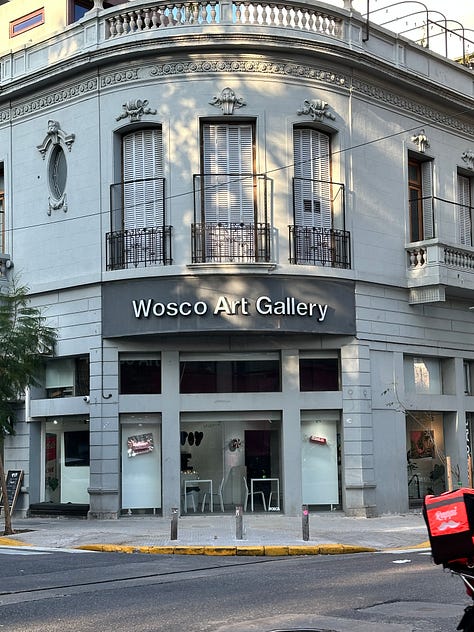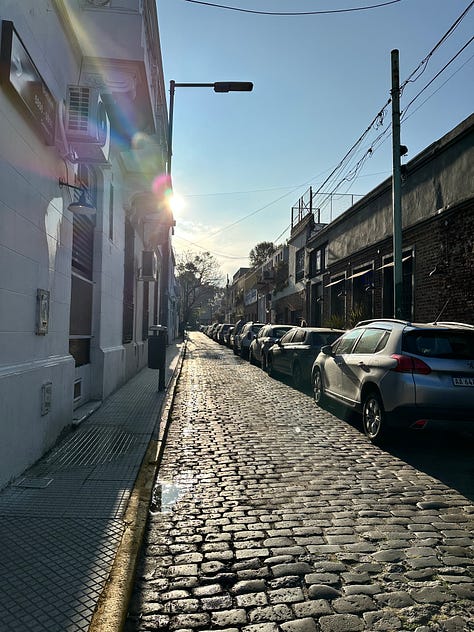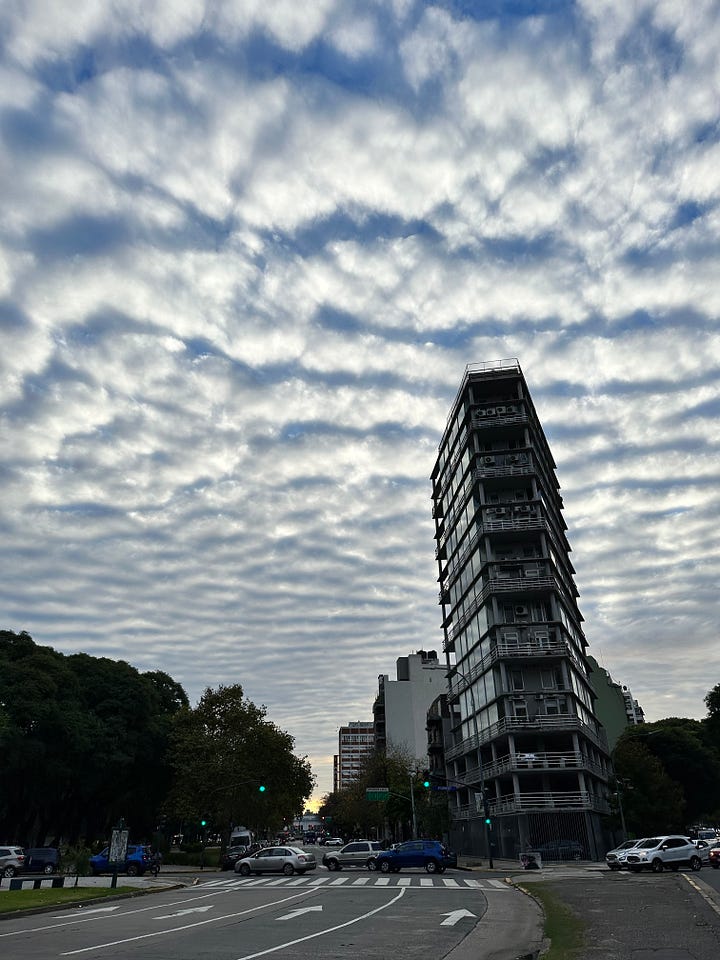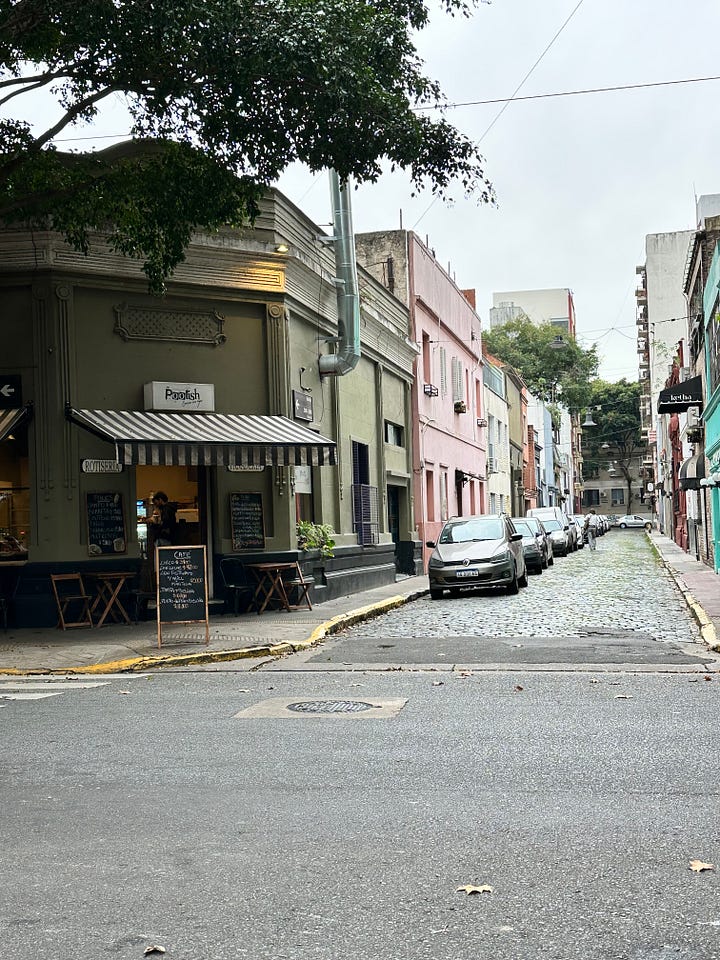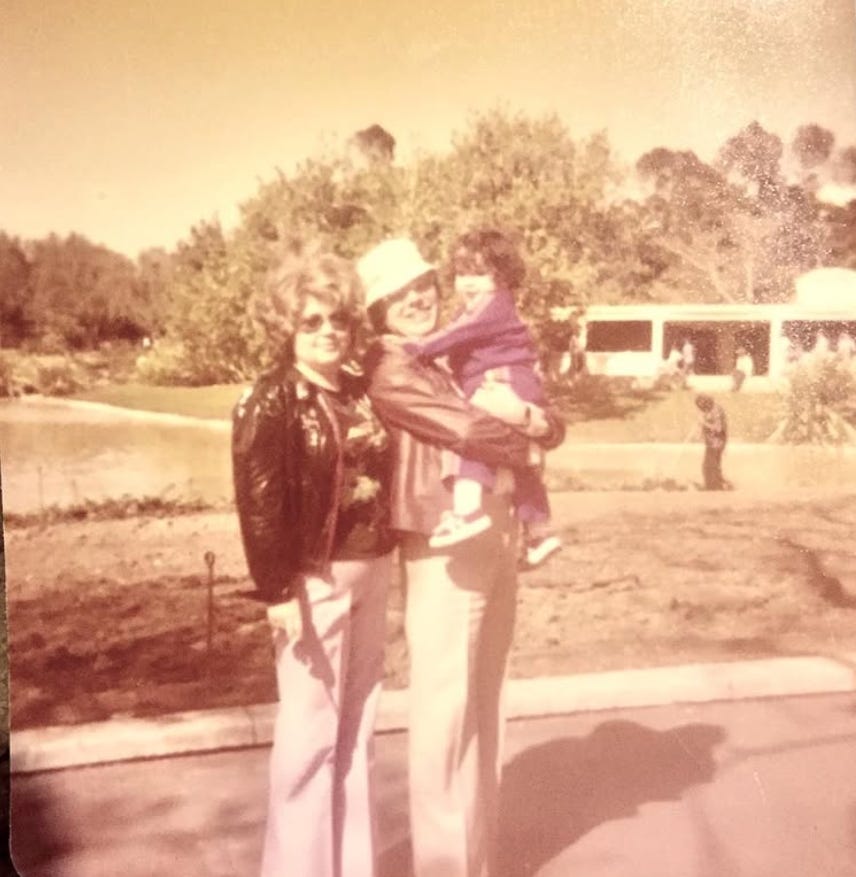#3 (Pinned Post) The Melomane and the Girl and All the Music
I grew up with a melomane father. A melomaniac. And that was a wonderful thing. Currently listening to: The musical stuff in this post
I was around sixteen when I finally sat down on the living room floor, vinyl records strewn about me and declared, “Ok, Daddy, I’m going to put all your records into categories.”
He smiled and watched me work. We spent the entirety of that day discussing music.
I cannot remember the category I began this huge enterprise with, but surely it must have been jazz. Count Basie, Duke Ellington, Glenn Miller, more Big Bands. Then the soloists: Frank, Ella, Lena, Tony Bennet, Vic Damone -whom Sinatra once hailed as “having the best pair of pipes in the business”.
And let me stop for a moment and direct your ears to this track. If that isn’t Vic achieving vocal perfection, I don’t know what is.
Gosh, I love the baritones. It’s the baritones that capture my heart and whose deep resonance I feel in my belly.
The Righteous Brothers also cover this song, equally worth listening to.
I might have continued with quartets: Dave Brubeck, then some Django Reinhardt.
Eight hundred vinyl records, from Jazz to old-school Salsa (yes, Tito Puente, Tito Rodriguez, Hector Lavoe, Johnny Pacheco) to Lucho Gatica’s Boleros, to the old-school rock of Bill Hailey and the Comets, Chuck Berry, The Beatles (didn’t they teach the world how to listen to music and almost single-handedly evolve it?), The Beach Boys (sonic adventurers as well with their Pet Sounds in ‘66), perhaps some Classic Rock, some Folk (mainly Simon and Garfunkel), perhaps a Woodstock compilation; defintely no Punk or Post-Punk (no Joy Division anywhere that I can recall) -some New Wave compilation here and there, mostly Duran Duran; Pop: Madonna, Michael Jackson, Wham … oh and Saturday Night Fever - I must have listened to that album a thousand times.
I wondered how Barry achieved the high notes. This was a mystery to me.
My childhood was filled with music and laughter. There was The Music Game, where Dad would offer me a dollar if I could identify the artist he was playing.
Music became the language Dad and I spoke. He was thrilled I was as excited about music as he was, and he made sure I received my musical education.
He sang for us.
He was also a baritone and sounded so much like Sinatra. He sang and then he discovered I could sing and we sang and life was magical.
When I was twelve years old, I had my first musical Epiphany (The Verve’s Urban Hymns would be my second and Paul Buchanan’s Mid-Air and The Blue Nile -which I discovered this year, would be the beautiful blessing of the second half of my life and my third - possibly last musical Epiphany).
The first Epiphany went something like this:
I was showering, twelve years old, and something popped up on the radio.
These beats, these sounds, like a shield revolving on the floor, unsure of when it would drop.
What was this? What were these metallic beats? And what were those sounds after the beats, flutes? Strange mechanical flutes? Like an Andean zampoña?
And why did it sound so amazing?
The DJ said that it had been “Behain da Whil” by “Depesh Mol” (Chilean pronunciation), from their latest album. I leapt out of the shower, donned the bathrobe that was far too big for me and intercepted my Dad on the staircase.
“Daddyyyyy!!! Please buy me this tape, pleaaaasseeee…”
I have no idea how he managed to find it, Depesh Mol and all, but find it, he did.
I spent the rest of my teenage years trying to get my hands on bootlegs and home-made copies of anything and everything they had ever done. Luckily my classmate’s older sister was a huge fan and Alejandro (my classmate) made me copies on blank tapes my Dad purchased for me.
Depeche Mode became my first reckoning with the power of music as a paradigm shifter at such an early age.
And their lyrics, they tackled everything from corporate greed to environmental angst and sadomasochism in relationships -which really, I did not understand, being twelve or thirteen, but no matter. I was sure they meant something by it.
Though I was to convert to Christianity after Dad’s death -I was 17, Blasmephous Rumors had me thinking about God and his integrity. It was a tough issue to grapple with as I was raised a nominal Catholic, read two children’s bibles from cover to cover when I was around ten and though my parents didn’t practice Catholicism in the real sense of the word “practice”; I did want to have some sort of relationship with God. I intuited He was fundamental.
And this the part that aches.
Whenever I tell this story or consign it to the written page, there’s a dull ache in my chest and I realize that some wounds never truly heal. It’s alright.
C.S. Lewis says that pain is God’s megaphone to a deaf world and Vision (the only superhero I like) asks this: What is Grief if not love persevering?
Some things are what they are.
I was seventeen and my father, a wealthy, wealthy man; had gone bankrupt. He lost everything, his businesses, his properties, absolutely everything.
I wrote a bit about that here, as a writing exercise. It’s personal (not private, those are two different things) -and it’s not something you can find linked on this Substack. But I’ll link it, it saves me having to write about it again.
We ended up living in two tiny rooms at a relative’s house.
But Dad…
Dad never lost his gumption. He promised all would be well, we would fight this battle and overcome.
I wasn’t worried. I was living in a hazy teen dream where there was music and literature and I still had the same conversations with my Dad. I was just sharing a room with my younger brother, that was the new normal. It was challenging but there were four of us and love kept us warm.
I had no idea how difficult it was to purchase food. I didn’t know Mom had given Dad her box of jewelry for him to pawn. And I had no idea Dad had started selling his vinyl records to make ends meet. They were stored in a small warehouse he had built (with his own hands) in this relative’s backyard.
Because at some point Dad had given our relative a sizeable sum of whatever it was he had left in the bank, the green light was there, to occupy two rooms, to build a small warehouse, to exist without being looked upon as aliens, a burden or a nuisance.
That would all change after his death.
But that is another story which really isn’t a part of this Substack.
The days leading up to his death were marked by the excitement of Depeche Mode’s visit to Chile. Their first-ever visit.
My cousins (whom I had sworn as vassals into my Depeche Mode fiefdom) daydreamt of seeing Dave, Martin, Andy and Alan onstage.
Dad had no money for the ticket, but I can see him now, calling up my uncle and asking him to purchase a ticket for me -a loan, so I could go with my cousins.
Believe me when I say, that at seventeen I had no real idea of the extent of our poverty. And as I look back and revisit the scene of my father on the phone with my uncle, my heart…
My heart, or is it my chest? My being. It all becomes narrow and tight, and even now I want to weep.
Depeche Mode was set to perform on April 8th, 1994 at around 10pm.
On April 7th at around 9pm my Dad went into a coma.
The doctors called it an aneurism, I knew it was a broken spirit. A broken heart.
I did not go to the concert, I felt something had ruptured within me and there was no music that would make the ruptured thing whole again.
I gave my ticket away to a friend.
My cousins didn’t want to attend.
I asked them to go and enjoy and sing and bask in this one big dream we had all shared.
My father died on April 9th, after midnight, as Depeche Mode were ending their concert, taking a bow and basking in the satisfaction of a perfect performance.
A performance that Santiago, Chile would forever remember.
You know how Don McLean sings about Buddy Holly and the day the music died in his most famous song, American Pie?
I felt like that, for around three years.
I didn’t listen to music for around three years (other factors were at play during my musicless years, another post for another time).
Then Toto’s Africa came on one day, while I was waiting for a bus to take me to Salta, Uruguay (again: a whole other story).
And I realized this: I could not survive without music. Without it speaking to me, coursing through metaphorical veins with sound and lyrics that reached my very center.
And then, in 1997, the Verve’s Urban Hymns became an injection of goodness. It seemed exclamations of “Oh Lord” were everywhere in Richard Ashcroft’s musical lexicon. And in the same year, Depeche Mode’s Ultra, happened. In the midst of Dave battling a heroine addiction, a masterpiece of an album was birthed. Truly I tell you: it is a masterpiece. Go listen and thank me later.
I could review these albums, but this post is of a different nature.
As time passed, I discovered different bands that accompanied me throughout different periods of my life. David Bowie’s Heathen was a huge part of my mid-twenties, riding for hours on public transportation to get to whatever odd job I had at the time… Bowie, a Baritone, my soft spot.
As an aside, let me tell you that I will listen to Arcade Fire’s Reflektor track, just to hear Bowie’s backing vocals. I anticipate them, the sweet waiting and when he sings, one or two verses -that I cannot to this day make out except for the word “resurrector” - it haunts the closing of the track and suddenly it’s all about Bowie and not Arcade Fire. And I love Arcade Fire. Not an epiphany, but I do love them.
Radiohead’s OK Computer and In Rainbows, the Chileans from Gondwana giving me a quiet sense of hope, The Violet Burning -a rather unknown band that created some of the most interesting sonic landscapes I’ve ever heard (The Violet Burning, 1996). Keane and the prominence of the piano and drums; David Sylvian’s Everything and Nothing (2000), the sounds of Massive Attack’s Mezzanine; Cocteau Twins, Marillion (an underrated band if there ever was one, both with Fish and later with Steve Hogarth), the Spaniards of Mecano, forefronted by the genuis of the Cano brothers; a CD compilation called “Brit Hot” where I discovered Puressence’s Fire, an amazing track.
I’d go out of my way to save what little money I had and I’d visit specialized CD stores in Santiago (not the big musical chain stores that carried mainstream artists, but the hidden shops that could get the special albums one craved). These were the tiny sonic adventures that would make me feel alive and provide much-needed respite when I found myself swimming upstream and failing.
Marc Almond was introduced to me by a gay friend (a huge no-no in Chile at the time). He lovingly made mix tapes for me, and in Marc Almond (the soloist), I discovered the plight of gay men and the bombastic be-ing in the world of their particular sensibilities.
It never ceases to amaze me how music is time travel. Forget HG Wells. Music can and will transport you back to whatever time was graced by the songs you were listening to. I say this because Frank Sinatra is forever tied to my father. And Marc Almond is tied to my friend, José Eduardo, who decided to leave this world many years ago.
And I never got the chance to say goodbye or tell him any of what I’ve written here.
Suzanne Ciani (the mother of all Synth) takes me back to the summer at Lago Rapel, the summer before my Dad’s death when my friends and I lay on our backs and gazed at at all those stars, stars you could never see in Santiago because of the smog and the clouds and the city light.
The Italians, spearheaded by Riccardo Cocciante, Umberto Tozzi and Giani Bella, were introduced to me by Rodrigo, a teacher with whom I worked; he would later become a dear, dear friend.
Rodrigo had a penchant for poppy eighties music and his Italians, a group of romantic crooners who were wild and tormented and intense. I fell for these musicians, and found a univerese of emotion in their lyrics and yes, as cliched at it seems, their passion.
This was no cheesy romance songdom, this was romantic love on steroids -with layers and density and complex, memorable melodies, truly worth listening to.
Go ahead and listen intently to Cocciante’s Margarita. There is no way you cannot be moved. Or Gianni Bella singing “Yo Canto y Tú” which is about his desire to be a songcrafter and his woman who refuses to understand, alienating and hurting him to his fiery, Italian core.
*We should all know by now, that romantic love does not equal mature love, but that’s another story for another day.
In my thirties, I started an online radio that played at a friend’s bar. I ended up Djing for her at that same bar (I didn’t drink or smoke and I like to go to bed on the earlier side of life, but music and the enjoyment of it seemed a more important task).
I bought myself a small mixer, used my laptop and there it was: folks loved what I played for them on weekends.
When Depeche Mode (which I stopped listening to after Ultra, I lost touch with them, like friends who drift apart for no good reason, perhaps I outgrew them) - when they released their album this year, I found peace. While the album wasn’t a masterpiece, there are some memorable tracks on there. Ghosts Again is beautiful and Martin Gore’s writing is as always, genius.
Life continued along the vein of me discovering sonic treats: Balthazar from Belgium with The Man Who Owns the Place being a feat in atmosphere and mood; Julian Doré from France, whimsical and eclectic; Engine Down’s Songbird -a syncopated masterpiece where the drums are everything -and I’m really not a fan of hardcore or emo.
Yet, and despite all these musical findings, there was nothing ephiphanous.
Until The Blue Nile and Paul Buchanan’s Mid Air.
I already wrote about this (here and here), so I’ll just link it, but I will say this again: to have such an Epiphany, now, at this juncture, during the second half of my life is truly a blessing.
And so serendipitous, finding them… Because life (and our good Lord) can still surprise you.
With music, chance encounters, new thoughts, growth and adventures that you have no idea are coming, or that have your name on them.
At any age.
The Psalms are songs, folks. They contain hope
and joy,
worship,
rage,
lament,
despair.
The Psalms are the epitome of all human emotion in the guise of lyrics.
Because God understands emotion, all its colors and hues. And he feels emotion. Read through scripture and you’ll find God’s heart hurts or his delight , his patience, compassion and tenderness.
(An aside: The word “fear” in the above verse, is the translation of the Hebrew “yare” which means reverence, respect and awe… a kind of “good fear” if you will, an appropriate response to the awesome glory of the Creator.)
This is one of my favorite verses:
He fills my life with good things. My youth is renewed like the eagle’s!
(Psalms 103:5 NLT)
There is no age to be surprised, or excited or overcome by joy. God renews our youth, our curiosity, our very be-ing in this world.
So whatever age you’re walking through, and if you are a believer, know this: God has a path.
And strength (and music and inspiration and art and love) to move along that path will be provided.
So take heart. And go listen to some good music.
And go pray.
Some photos of Buenos Aires (because that’s what we do here).
